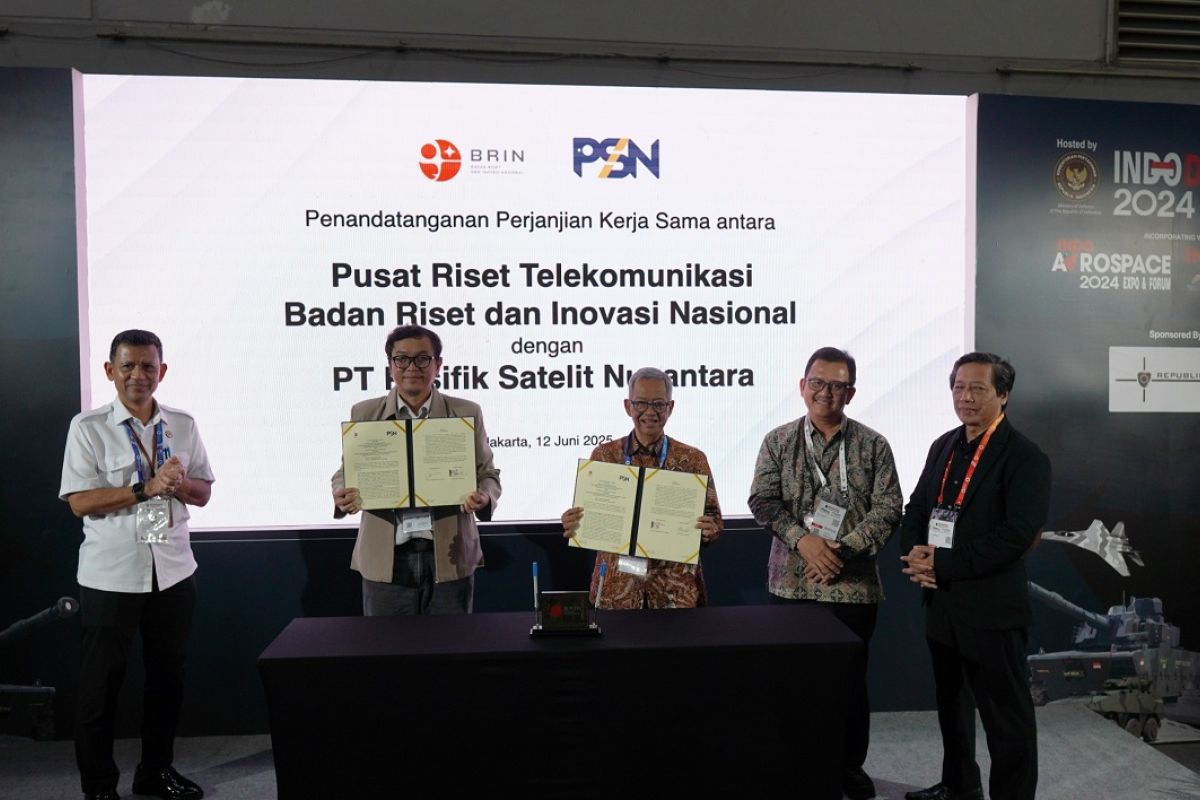Indonesia is making a major leap in digital sovereignty with the reinforcement of its national satellite infrastructure. In a bold move to strengthen national connectivity and reduce reliance on foreign technology, PT Pasifik Satelit Nusantara (PSN) has formed a strategic alliance with the National Research and Innovation Agency (BRIN) and state-owned electronics manufacturer PT LEN Industri.
This collaboration signals a new era for Indonesia’s satellite ecosystem, focused on homegrown capabilities, robust research partnerships, and integrated infrastructure.
National Satellite Infrastructure: Why It Matters
Indonesia, an archipelagic nation of over 17,000 islands, faces a unique challenge in providing uniform internet access across remote areas. Terrestrial infrastructure like fiber optics cannot easily reach many islands and mountainous regions. In this context, national satellite infrastructure plays a crucial role in bridging the digital divide.
Satellites enable remote education, telehealth, e-government services, and secure defense communications. As Indonesia ramps up its digital economy agenda, having sovereign and scalable space-based communication systems becomes vital to national resilience.
The Strategic Roles of PSN, BRIN, and PT LEN
PT Pasifik Satelit Nusantara (PSN)
As Indonesia’s first private satellite operator, PSN has long been at the forefront of satellite innovation. Known for launching the SATRIA-1 (Satellite of the Republic of Indonesia), PSN now seeks to scale its efforts with wider industry and government collaboration. With BRIN and PT LEN onboard, PSN aims to expand satellite coverage and performance while also preparing for SATRIA-2 and future constellations.
BRIN (National Research and Innovation Agency)
BRIN contributes world-class research and technology development capacity. Through this partnership, BRIN will support innovation in satellite payloads, software, and ground system technologies. Their involvement ensures that Indonesia’s satellite systems are not just operated locally—but also designed, built, and evolved by Indonesian talent.
PT LEN Industri
With experience in defense electronics, control systems, and aerospace components, PT LEN brings critical expertise in manufacturing, systems integration, and ground control infrastructure. Their role is vital in ensuring end-to-end operational support and reducing Indonesia’s reliance on imported satellite components.
Together, the three institutions create a powerful public-private innovation triad to develop national satellite infrastructure Indonesia needs for digital and strategic autonomy.
Key Objectives and Outcomes of the Collaboration
1. Development of Indigenous Satellite Technology
One of the major goals is reducing dependency on foreign satellite manufacturers. Through this partnership, PSN, BRIN, and PT LEN plan to co-develop technologies for payload design, propulsion systems, and telemetry. By doing so, Indonesia aims to control the full satellite value chain—from design and manufacturing to launch and operations.
This could lay the groundwork for a future where Indonesia not only uses satellites but becomes an exporter of satellite technology.
2. Establishment of Ground Segment and Network Support
To support satellite operations, the initiative includes upgrading ground stations across Indonesia. These include teleport centers, tracking systems, and integrated network monitoring units. PT LEN will lead the infrastructure build-out, while PSN handles network integration. The goal is to ensure stable, high-bandwidth satellite services in rural and underserved regions.
This infrastructure also paves the way for launching a national satellite operations center that meets international security and redundancy standards.
3. Enabling Satellite-based National Connectivity Programs
The strengthened satellite backbone will support programs like Bakti Kominfo’s rural broadband projects and national e-learning initiatives. More than 150,000 public service points—including schools, Puskesmas (community health centers), and police stations—will benefit from improved satellite bandwidth. With better national satellite infrastructure, Indonesia can deliver e-governance even to the most isolated corners.
Long-term Vision: Towards a Self-Reliant Satellite Ecosystem
The collaboration is not just about short-term infrastructure gains—it’s about shaping the future. BRIN’s roadmap includes space R&D centers that will work closely with PSN to develop multi-orbit satellite strategies (GEO, MEO, LEO). These satellite systems will address not just connectivity but also earth observation, maritime surveillance, and disaster management.
PT LEN has also expressed interest in exploring high-throughput satellite manufacturing in Indonesia, which would put the country in a league with space-capable nations like India and South Korea.
Policy and Investment Synergy
The government supports this momentum through policies encouraging local content (TKDN), fiscal incentives for satellite innovation, and investment protections for infrastructure players. These frameworks will help ensure that the new national satellite infrastructure Indonesia develops is sustainable, inclusive, and future-ready.
Challenges and the Path Forward
While this initiative is ambitious, it comes with challenges. These include:
- Human Capital Shortage: There is a lack of satellite engineers and aerospace R&D professionals in Indonesia. BRIN and PSN plan to collaborate with universities for satellite engineering programs.
- Funding and ROI: Satellite projects require long-term capital with delayed returns. A hybrid funding model involving public support and private investment is essential.
- Geopolitical Risks: As satellite systems become critical infrastructure, cybersecurity and space diplomacy become key. Indonesia needs to enhance its space governance and cyber defense protocols.
Despite these hurdles, Indonesia’s resolve remains firm. The coordinated approach between state, private sector, and academia increases the likelihood of success and signals a new chapter in national innovation.
The collaboration between PSN, BRIN, and PT LEN is a milestone in Indonesia’s quest for digital sovereignty. By building its own national satellite infrastructure, Indonesia takes a critical step toward ensuring inclusive internet access, strategic independence, and a stronger position in the global space economy.
In a world increasingly reliant on space-based infrastructure, Indonesia’s efforts are not just timely—they are essential. Through strategic partnerships and smart investments, the country is not only connecting its people but also shaping its technological destiny from above.
Read More






 Saturday, 24-01-26
Saturday, 24-01-26







